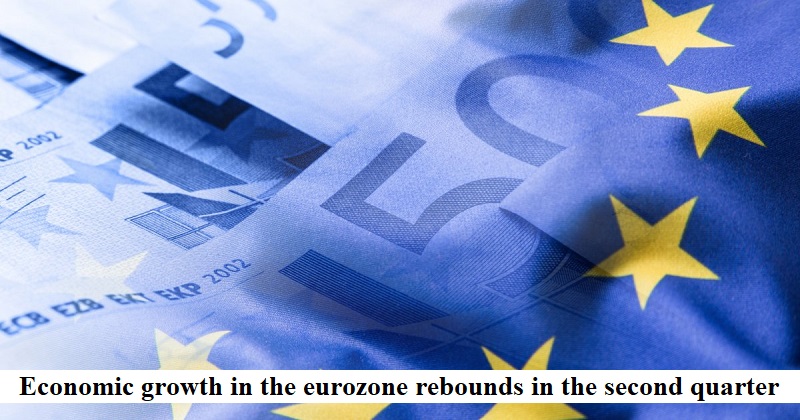
The European Union’s (EU) agency released data on Monday (July 31) showing that economic growth in the eurozone rebounded in the second quarter. As a result, European shares saw an increase, with Germany’s blue-chip index or DAX reaching a record high.
According to the EU’s Eurostat data agency, the growth in the eurozone, which consists of 20 countries using the euro, reached 0.3 per cent in the second quarter (April-June), bouncing back from zero growth in the first three months of the year.
This growth comes after a prolonged period of stagnation in the eurozone economy, although inflation has been falling from its peak last year. The data also revealed a decline in the inflation rate from 5.5 per cent to 5.3 per cent in July.
Earlier this year, the European Commission’s (EC) winter forecasts had suggested that the eurozone would narrowly avoid the technical recession predicted for November last year, with growth recorded at 0.1 per cent quarter-on-quarter.
However, concerns persist over the stubbornly high inflation in the eurozone, along with fears regarding slow growth and stagnation of Gross Domestic Product (GDP) in the largest European economy, Germany.
On the positive side, the economies of France and Spain grew more than expected, which has implications for the European Central Bank’s (ECB) interest rate policy. The ECB has been trying to control soaring inflation and has recently raised interest rates aggressively, with the latest hike being the ninth consecutive one.
Despite a recent drop in inflation, the figures remain well above the ECB’s target of two per cent. ECB President Christine Lagarde hinted at a possible pause in aggressive interest rate hikes, but analysts believe another hike is still a possibility, which could further impact economic growth.
Following the release of the EU agency’s data, European shares, including the German DAX, rose, with the DAX hitting a record high for the second consecutive session, driven in part by the performance of drug and pesticide maker Bayer. The pan-European STOXX 600 and Italy’s FTSE MIB index also experienced increases on Monday.
As the next ECB rate-setting meeting approaches in September, the recent eurozone GDP reading is not expected to be a “dovish argument,” according to Bert Colijn, a senior eurozone economist at ING. This suggests that another interest rate hike may still be on the table.

Post Your Comments